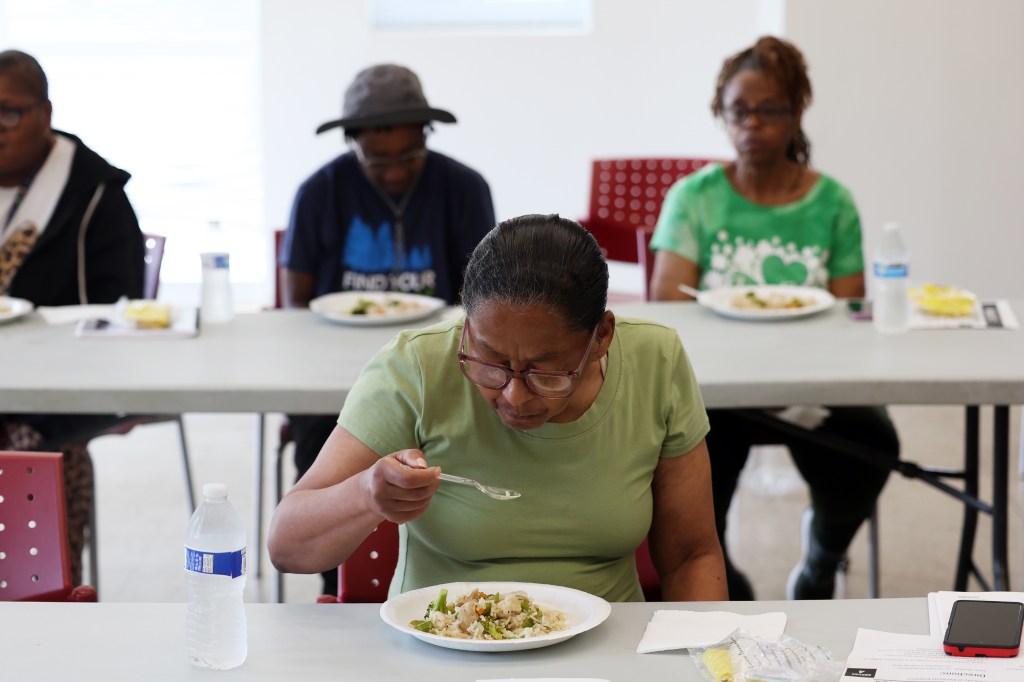As the threat of a government shutdown looms, a battle in Washington is heating up over stopgap funding. Recently, lawmakers voted 44-48 against a short-term funding bill that would ensure the continuation of essential services, including financial support for the Supplemental Nutrition Assistance Program (SNAP) nutrition education initiative, known as SNAP-Ed. This critical program is set to end as the federal fiscal year comes to a close on Tuesday.
SNAP-Ed plays a vital role in promoting healthy lifestyles and preventing obesity among low-income individuals and families in Illinois. By collaborating with thousands of community organizations throughout the state, SNAP-Ed directly supports low-resourced families, helping them improve their health and better manage their food resources. Many of the program’s staff members reside in the same neighborhoods they serve, fostering trust and relatability.
The impending termination of SNAP-Ed funding occurs against a backdrop of significant federal budget cuts outlined in the One Big Beautiful Bill. Those cuts are projected to result in the loss of SNAP benefits for approximately 229,000 people in Illinois, with an additional 400,000 residents facing reduced assistance. These alarming statistics emerged from analyses conducted by Governor J.B. Pritzker’s office, the Greater Chicago Food Depository, and the Center on Budget and Policy Priorities.
As the director of the SNAP-Ed program at the University of Illinois Chicago, I witness the transformative impact of our initiatives firsthand. Research indicates that SNAP-Ed effectively prevents over 5,000 cases of obesity and around 570 cases of food insecurity each year within the state. Participants in the program report positive health changes, with 60% embracing healthier lifestyles as a result of their engagement.
The program also provides valuable resources tailored for both individuals and practitioners, such as Find Food Illinois. This publicly available resource is a dynamic map showcasing nearby grocery stores, food pantries, and restaurants that accept SNAP benefits or those associated with the Women, Infants, and Children (WIC) program.
Moreover, SNAP-Ed addresses the root causes of food access challenges through innovative solutions. Notably, our partnership with Top Box Foods resulted in the creation of a meal kit delivery service—the first of its kind nationwide—enabling home delivery of nutritious meals to families using SNAP benefits.
As funding for SNAP-Ed ceases on Tuesday, we face the loss of a program that has positively influenced lives for over 30 years—especially among our most vulnerable populations. Although funding was cut in the Senate, there is still a chance to restore SNAP-Ed’s funding on a national level.
Preventative nutrition is fundamental to achieving better health outcomes. If the Senate democrats’ efforts to secure increased health care funding do not succeed in reinstating SNAP-Ed funding nationally, Illinois must step in to maintain these critical services. With food assistance resources dwindling, it’s crucial that we continue supporting initiatives that keep communities healthy.
SNAP-Ed aims to educate families on healthier eating habits and encourage increased physical activity. However, when food resources are limited, families often prioritize keeping their members fed over ensuring nutritional quality, creating a dilemma that negatively affects overall well-being.
This issue transcends moral considerations; it has significant financial implications as well. Failure to act now could result in higher healthcare costs later. The direct financial burden of obesity in the U.S. accounts for roughly 17% of total health care spending, translating to an estimated $126 billion annually—costs that primarily impact our most vulnerable communities. SNAP-Ed represents an economical solution; for every dollar invested, there is a return of $5 to $9.
To avert the end of SNAP-Ed, it is imperative that Democrats include funding for the program in any proposed stopgap funding legislation. Moreover, repealing the One Big Beautiful Bill would also help restore funding across the nation. In the absence of federal support, Illinois policymakers should be prepared to fill the financial gap or face significant costs in the future.
Daylan Dufelmeier, Ph.D., serves as the director of the SNAP-Ed program at the University of Illinois Chicago, the associate director of the Office of Community Engagement and Neighborhood Health Partnerships at UI Health, and is a public voices fellow with The OpEd Project.






